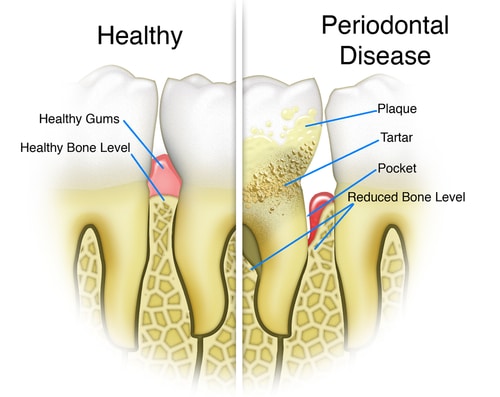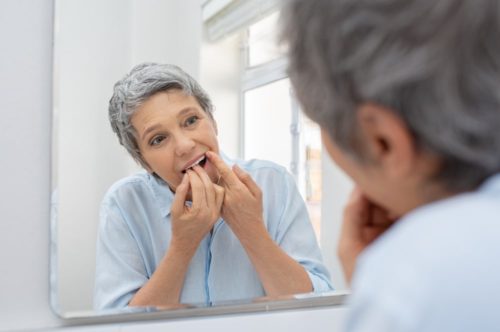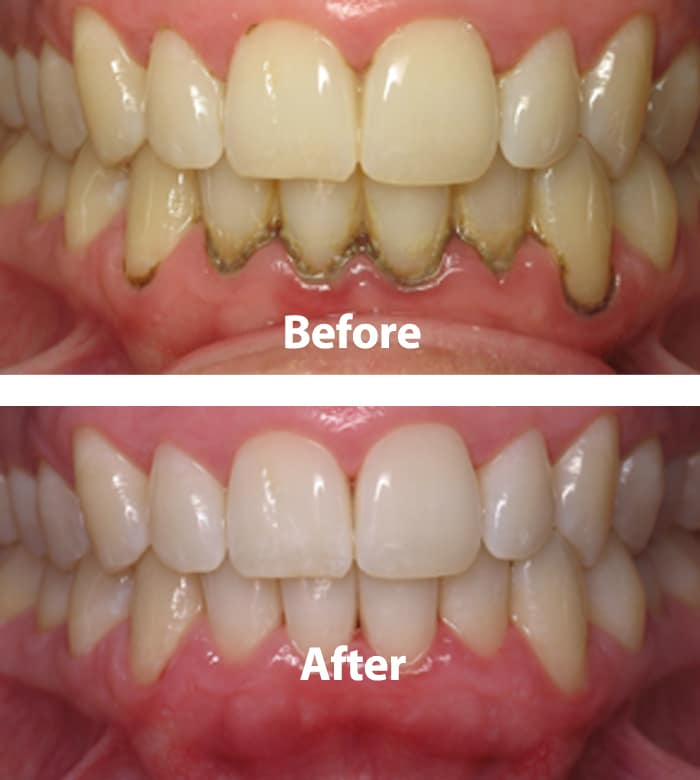Periodontal Disease Can Be Treated
Understanding Periodontal Disease Austin TX

Periodontal disease, or gum disease, is one of the most pervasive health conditions in the world. According to 2012 data from the CDC, 47.2% of all Americans suffer from some form of gum disease. You may develop the condition if harmful bacteria accumulate inside your mouth. As bacteria move from your teeth past your gum line, they will create pockets in the soft tissues. Untreated this can lead to a host of symptoms, including tooth loss and bone recession. Fortunately, Dr. Helen Ragsdale offers highly effective treatment for periodontal disease at Austin Dentist. In most cases, she employs state-of-the-art lasers for minimal discomfort care and enhanced healing.
Laser Periodontal Treatment
In addition to performing traditional treatments, your Austin dentist uses some of the top dental lasers to address moderate to severe gum disease. During laser pocket decontamination, Dr. Ragsdale will insert a tiny laser probe into the periodontal pockets. The energy will destroy bacteria with little impact on your surrounding tissues. Thanks to the high speed and precision of our lasers, you will require a small amount of local anesthesia during treatment. The lasers also seal off blood vessels, stimulate healing, and trigger the release of endorphins. Therefore, you will have a very brief recovery, and you should be able to eat a varied diet within a few days.
Periodontal Disease Symtoms
In the early stages of periodontal disease, you may not experience any symptoms at all. At your biannual examination appointments, Dr. Ragsdale will look for the signs of gum disease that are only visible to a dental professional. These symptoms include pockets in your soft tissues, jawbone degeneration, and subtle loosening of teeth.
If periodontal disease progresses, you will begin to notice more dramatic side effects. These could include gum sensitivity, inflammation, bad breath, and abscesses. In very severe cases, you may notice that your bite alignment changes or that your dentures no longer fit securely. Your teeth may even start to loosen or come out.
Periodontal Disease Risk Factors
There are a number of considerations leading to an increased risk for gum disease. These risk factors include:
- Smoking: Smoking is one of the most notable causes of gum disease.
- Age: Seniors face a much higher risk for this condition.
- Diet: Eating a nutrient-deficient diet makes patients more vulnerable oral bacteria. Starch and sugar can also lead to enamel erosion and gum inflammation.
- Autoimmune disorders: Patients with an autoimmune disease, such as rheumatoid arthritis or HIV/AIDS, are also more likely to develop gum disease.
- Dry mouth: Saliva helps to remove harmful bacteria from your mouth and buffer bacterial by-products. If you suffer from dry mouth, bacteria accumulates more easily and causes more rapid damage.
- Hormone changes: Pregnancy and menopause can increase your chances for periodontal disease.
- Genetics: You are far more likely to develop gum disease if your parents suffered from the condition.
Periodontal Disease Prevention
As stated above, there are a number of things that can cause periodontal disease, so the condition is not always preventable. Nevertheless, there are certain things you can do to reduce your risks for the condition. Routine dental care is the most effective way to prevent gum disease. You should brush and floss your teeth daily. You should also limit the amount of starch and sugar that you consume. However, even complete homecare will not remove all of the harmful plaque and tartar from your teeth. To protect your smile fully, you should schedule regular appointments with your Austin dentist. Our hygienist can keep your teeth free from bacteria, and Dr. Ragsdale will monitor your oral health, checking for the earliest symptoms of periodontal disease.

Contact Austin Laser Dentist
If you are suffering from gum disease, you should seek treatment as soon as possible. Even if you have not been diagnosed with the condition, it is important to schedule routine screenings and protect your oral health. Contact us today at 512-346-4690 to book your consultation. Dr. Ragsdale and her team treat patients in the greater Austin area, including Round Rock, Pflugerville, and Georgetown.


